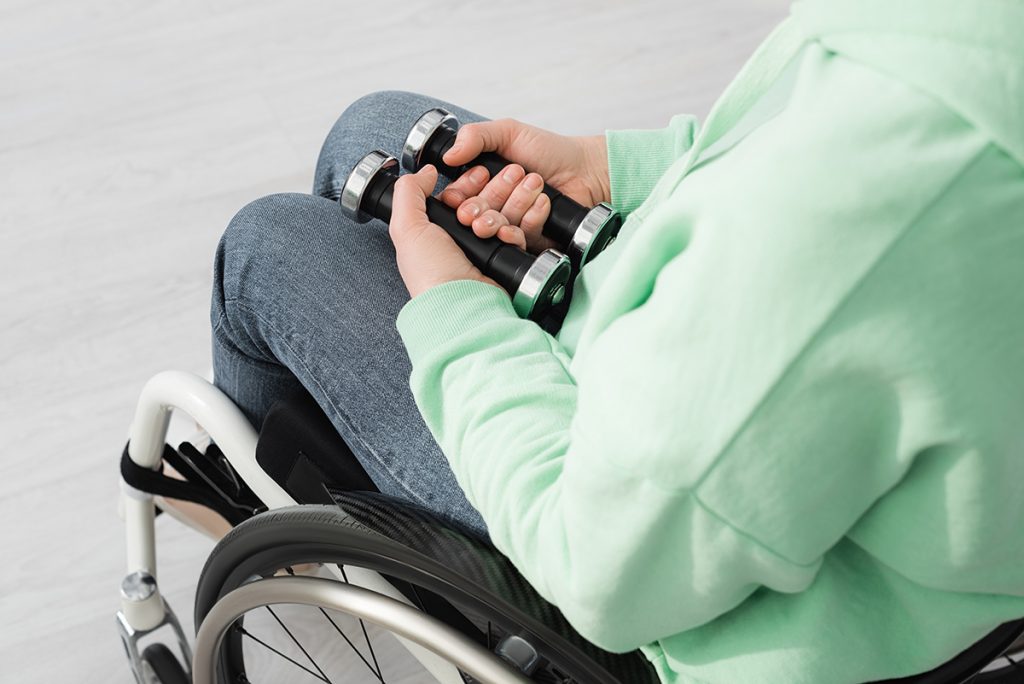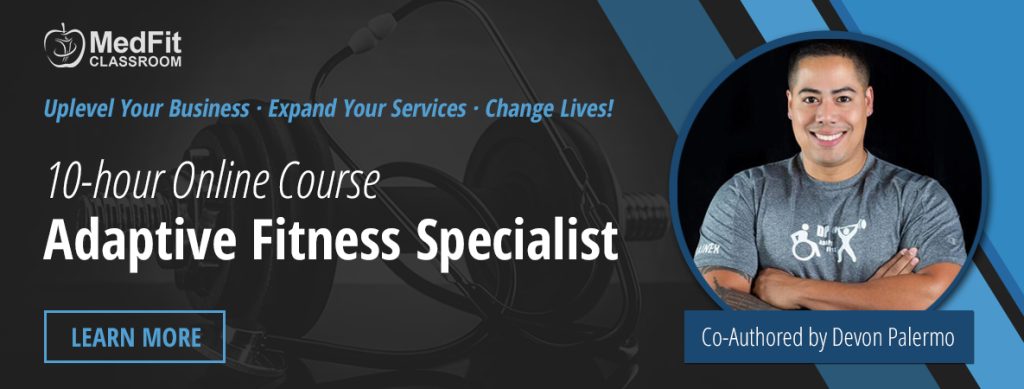Her insurance benefits had just run dry, we were at a critical point in her rehabilitation and recovery following a Spinal Cord Injury (SCI) from an automobile accident. “What should I do?” she asked me as we neared the end of a therapy session. “Why don’t we meet up and just keep exercising.” I replied and the rest was history.
There are countless other stories with other patients at the time that could have easily pointed me in the same direction. “I am being discharged with a home exercise program, but I want to keep working on my Stroke recovery.” or “I have been using a wheelchair for the past 20 years and I want to maintain my health and function as I continue to age but every time I go to a gym it just does not work out.” or “I wish there were a way I can be active besides adaptive sports.”

In my case, it was the former, a patient of mine with so much potential for continued outcomes was being prematurely discharged from physical therapy due to insurance limitations — the start of my personal journey into adaptive fitness began.
Up until the start of this journey in 2005, the majority of activities for individuals living with or recovering from disability was limited to adaptive sports… Wheelchair Basketball, Quad Rugby, Wheelchair racing, etc. The availability of fitness programs, group fitness, and even accessible gyms were very limited.
The idea that there was a trainer that was performing one-on-one fitness training with an SCI client and that the individual was excelling to the point that once therapy resumed, newer goals could be addressed by the therapists leading to better outcomes, spread throughout the rehabilitation halls and soon more folks wanted this type of training in addition to therapy.
What initially started as a temporary fix to aid a patient in need, has led to redefining my own career and sharing through experience and education what adaptive fitness is and how adaptive fitness trainers can bridge a huge gap.
Adaptive Fitness has really blossomed and now (thanks to social media) Adaptive Fitness Trainers, clients, and facilities are able to share training experiences to the public.
Wheelchair users can highlight their fitness workouts, PRs, and other fitness trends and challenges. Facilities can highlight client success stories, and brands can and have sponsored wheelchair athletes.
For the purpose of this article, I would like to highlight education and standards as I identify what adaptive fitness means to me.
Group Exercise, Virtual Group exercise, Seated Exercise, Adaptive Crossfit, one-on-one personal training can all be identified as Adaptive Fitness and really anyone can lead a group exercise class for any and all abilities… but should they?
Understanding the needs of a participant who is living with Multiple Sclerosis, Transverse Myelitis, Cerebral Palsy, Stroke and SCI in the same group class is extremely important for the safety of all individuals and should not be taken lightly.
Adaptive options presented to one participant may not work for another. Some folks may need specific cueing to maintain safety while others may be able to accept any challenge without adaptive needs.
Understanding risks, precautions and limitations to maintain safety in the group class setting but still make it an effective class is vitally important, and is why having the proper education to lead such classes is a must.
Working one-on-one with an adaptive fitness client who is focused on neuro recovery following a neurological impairment is not a cookie cutter type workout. You can use exercises you may know of, but the set and rep schemes differ entirely and blow traditional routines with 4 sets of 10 reps out of the water. There are specific strategies that can be utilized to effectively challenge someone working on improving neuroplasticity, but how you implement those strategies is dependent upon the individual, the diagnoses, and the strategy being utilized. Having an understanding of all of the above is imperative to your success as an adaptive trainer and their success for their outcomes
The same can be said for an adaptive client working on functional mobility. If floor transfers or stair climbing is a challenge then working on movements and exercises to improve those abilities is a must, but it’s important to have an understanding of how to guard, how to support, how to transfer, how to use your adaptive trainer body to aid your adaptive client in successful progressions toward achieving the movement they are working towards.
An understanding of adaptive training, adaptive accessories that can be used, equipment that can be modified, and strategies that can be used to make an adaptive client successful in the pursuit of their goals should be your goal as a Medical Fitness Professional. So that you become that trainer that should be leading adaptive fitness classes/session and not the trainer that is leading the classes/sessions but shouldn’t be.
Become an Adaptive Fitness Specialist
The Adaptive Fitness Specialist online course is designed to provide the knowledge needed to safely and effectively design and implement adaptive exercise programs for individuals living with or recovering from a physical disability or disease.
Devon Palermo is a leading authority on Adaptive Fitness for those living with or recovering from a disability. He is the Founder and Principal director of DPI Adaptive Fitness, A company focused on safe and effective adaptive fitness for individuals living with disabilities. With over 15 years of experience in both fitness and rehab, He is the go-to resource for clients, therapists, and doctors in the DC, Maryland and Virginia area looking to maximize the benefits of adaptive exercise to improve strength, balance, function and abilities. dpiadaptivefitness.co


